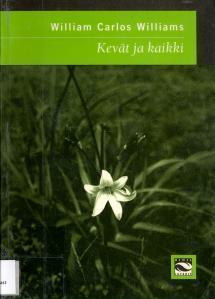What do you think?
Rate this book


141 pages
First published January 1, 1923
XVII
Our orchestra
is the cat’s nuts—
Banjo jazz
with a nickleplated
amplifier to
soothe
the savage beast—
Get the rhythm
that sheet stuff
‘s a lot of cheese.
Man
gimme the key
and lemme loose—
I make ‘em crazy
with my harmonies—
Shoot it, Jimmy
Nobody
Nobody else
but me—
They can’t copy it.
* * * * *
What I put down of value will have this value: an escape from crude symbolism, the annihilation of strained associations, complicated ritualistic forms designed to separate the work from “reality”—such as rhyme, meter as meter and not as essential of the work, one of its words.
But this smacks too much of the nature of—This is all negative and appears to be boastful. It is not intended to be so. Rather the opposite.
The work will be in the realm of the imagination as pure as the sky is to a fisherman—A very clouded sentence. The word must be put down for itself, not as a symbol of nature but a part, cognizant of the whole—aware—civilized.